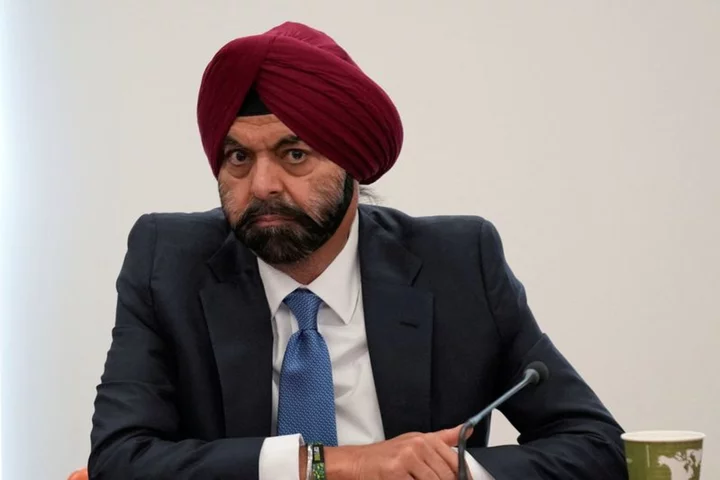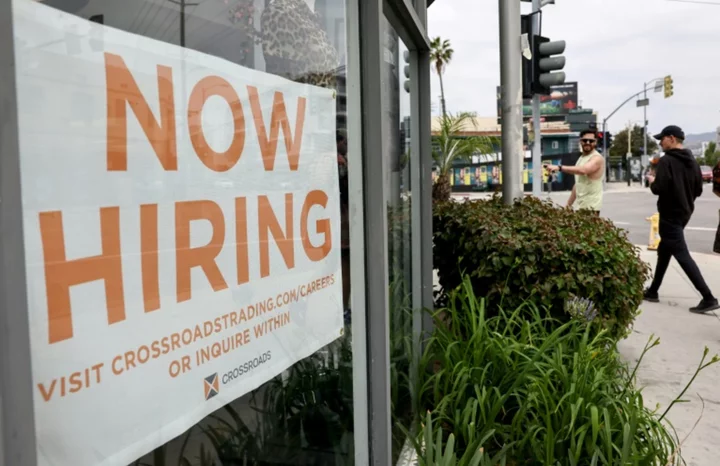South Korea will allow new domestic players to enter its banking industry for the first time in 30 years, a move meant to boost competition in a sector dominated by five major lenders.
The country’s financial regulator will allow financial firms to apply for nationwide commercial bank licenses, the Financial Services Commission said in a statement on Wednesday, the first time it’s doing so since 1992. The move is seen paving the way for competition that could help lower interest rate costs for consumers.
Lenders made record profits during the Covid pandemic and “paid their interest income as bonuses and dividends for employees and shareholders rather than returning it to citizens,” the FSC said in the statement.
Daegu Bank, a regional banking unit of DGB Financial Group Inc., may become the first firm to take advantage of the expanded rule, with an intention to transform into a nationwide bank, according to the statement.
DGB shares rose as much as 1.2%. South Korea lenders traded lower, with the country’s first online-only lender KakaoBank Corp. falling as much as 2.5% in Seoul trading. Woori Financial Group Inc. and Hana Financial Group, the parent companies for two of Korea’s biggest banks, also dropped.
The government’s move comes after President Yoon Suk Yeol earlier this year criticized banks for having a “money feast”: booking “easy” profits from the gap between interest rates on deposits and those on loans, while rewarding their executives with big bonuses as borrowers struggled to pay high interest rates. Since then, financial regulators launched a task force and the country’s antitrust watchdog probed major lenders to assess whether they colluded on loan rates.
The top five Korean lenders — Kookmin Bank, Shinhan Bank, KEB Hana Bank, Woori Bank and NongHyup Bank — account for about 63% of the country’s total 4,115 trillion won ($3.16 trillion) in bank assets and about three-quarters of deposits, according to the FSC.
The lenders posted a combined 12.7 trillion won in net income last year, surging about 18% from the prior year. The lenders handed out 2 trillion won in bonuses to employees last year, according to the regulator.
Despite the removal of one major hurdle, smaller firms still face an uphill battle entering an industry dominated by giant competitors, according to Yongjin Seol, an analyst at SK Securities Co.
“Even though regional banks can get nationwide commercial banking licenses, whether they can get nationwide clients is a different issue — I doubt it,” Seol said by phone.
South Korean banks aren’t alone in facing criticism for excessive profits during a time of surging inflation and high costs for consumers. New Zealand is starting a market study into competition in the sector for personal banking services to ensure the market is working well for citizens. UK lawmakers have criticized the largest banks for offering stingy savings rates to customers. And in the US, President Joe Biden called out banks, among other companies, for charging excessive fees.
In South Korea, financial regulators will also allow more online-only banks and ease the loan-to-deposit rules for foreign banks’ local branches, according to the statement.
Meanwhile, if Daegu Bank submits its application in the near future, the regulator would grant it a license within the year after a review, FSC’s Vice Chairman Kim So-young told reporters. Daegu Bank would be able to open branches nationwide and expand loans to big companies if it gets the approval.
--With assistance from Whanwoong Choi.
(Updates with market size, analyst comment starting in 7th paragraph.)









